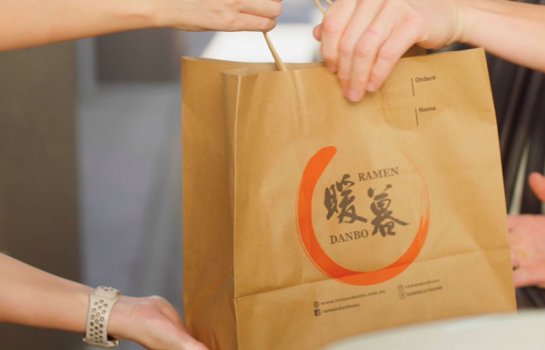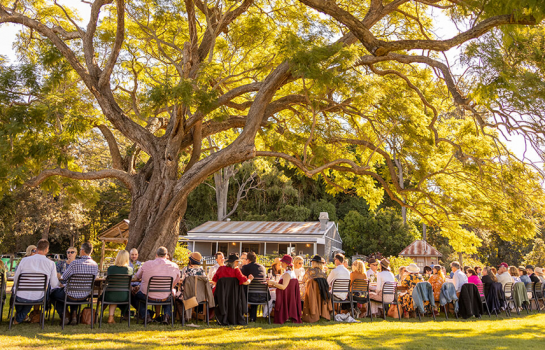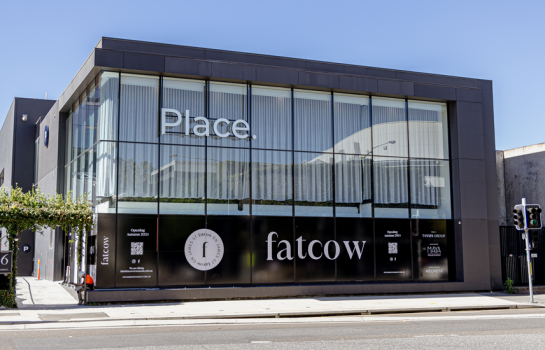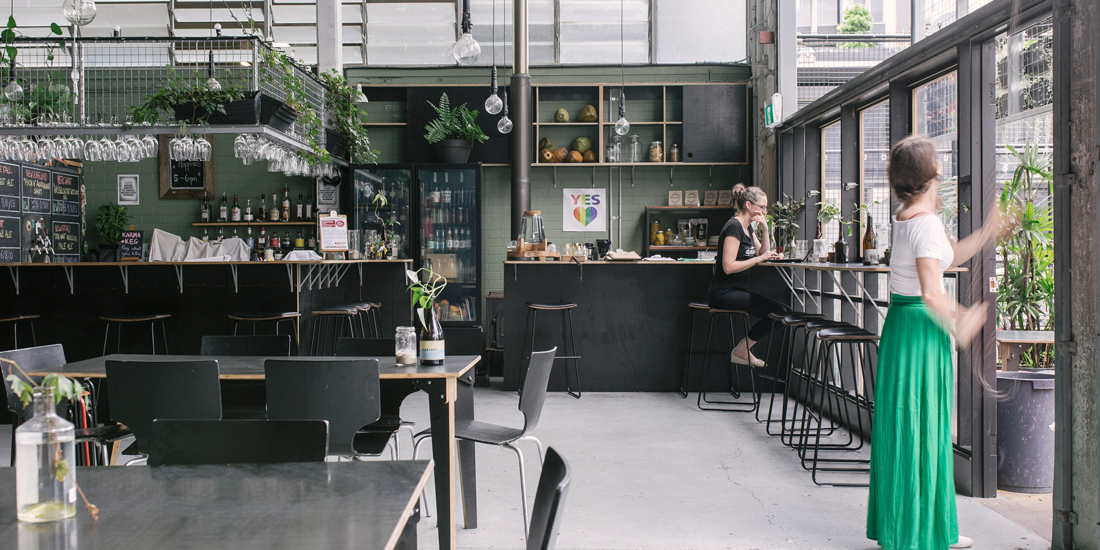
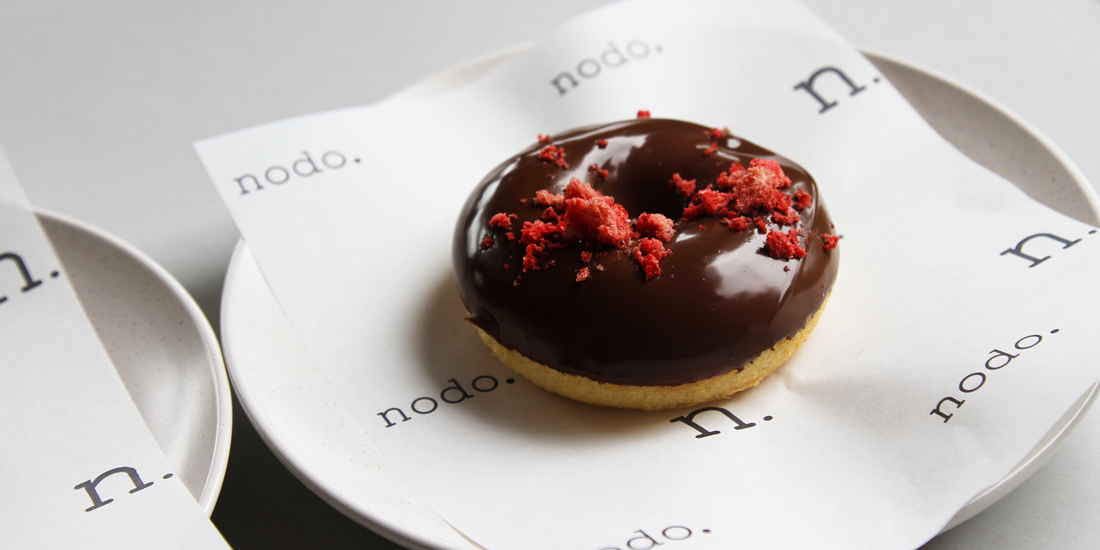

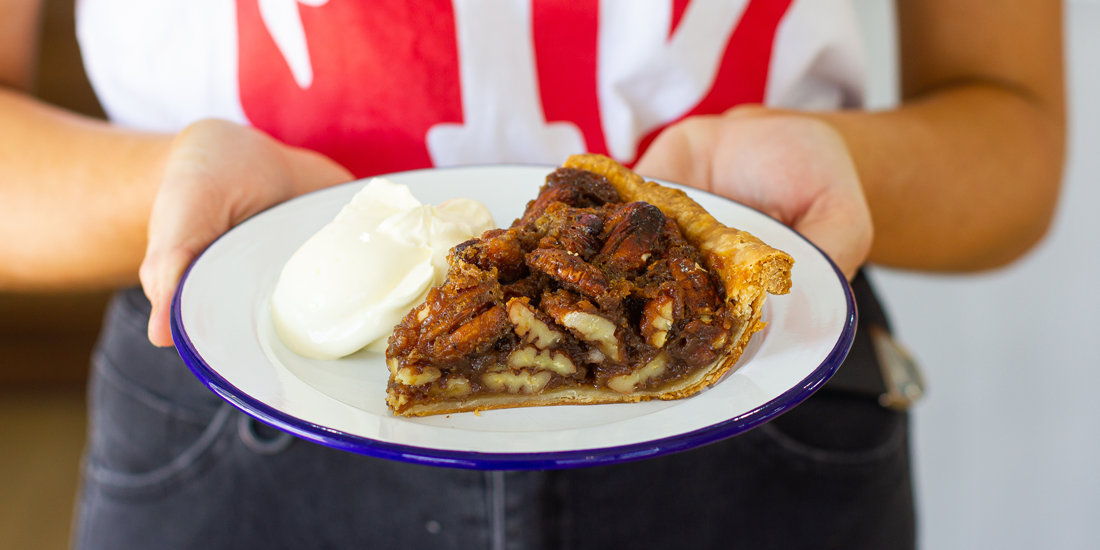
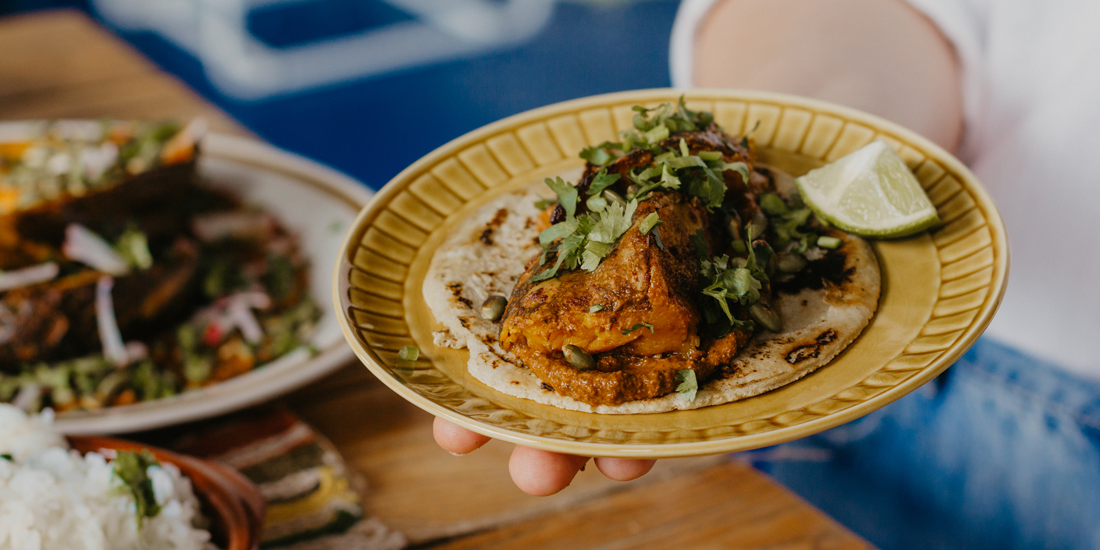
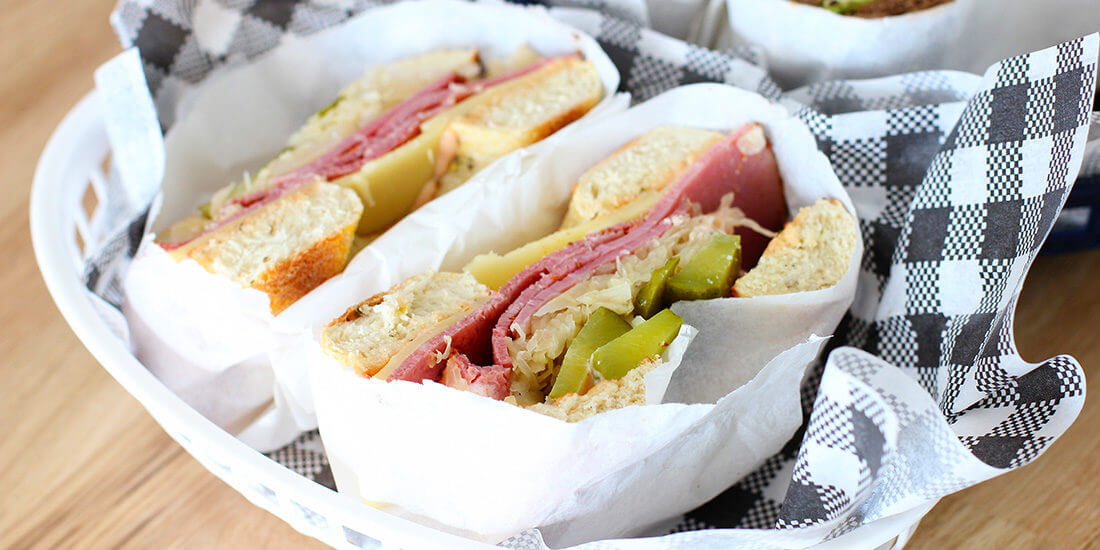
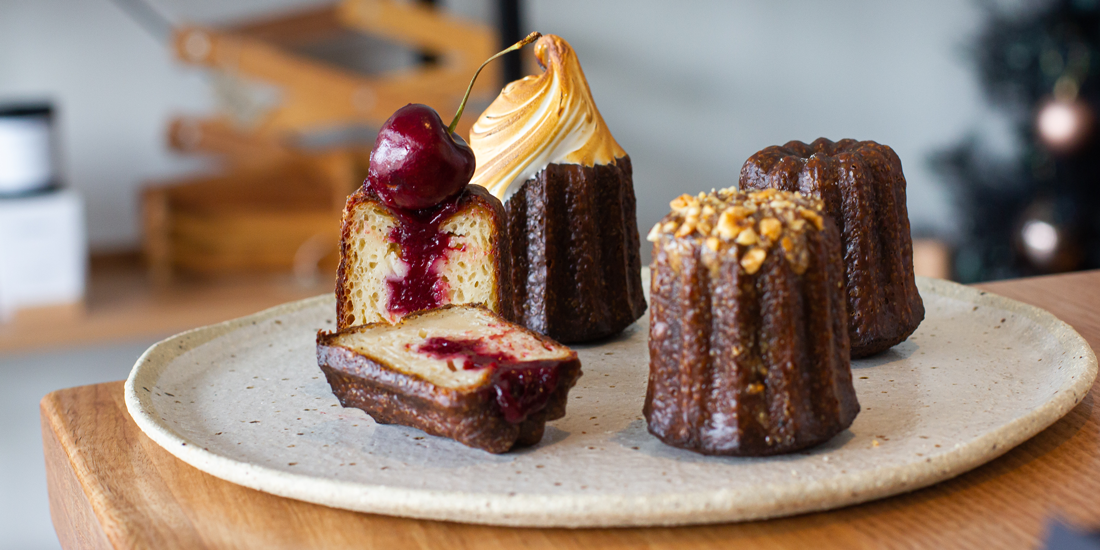
More than a kitchen – a look back at the magic and legacy of Wandering Cooks
Nodo, Lisboa Caffe, Bella & Tortie, El Planta, Alphabet Cafe, Bee One Third, NYC Bagel Deli, 31 Degrees Chocolates, Pie Town, Mongrel – what do these businesses all have in common? Aside from the fact that all of them are highly regarded amongst Brisbane eaters for their respective culinary offerings, each operation spent a portion of their formative years getting their legs under them at Wandering Cooks. Few organisations, if any, can claim it contributed to the growth of the local food scene in the same way (and on the same scale) as the innovative South Brisbane-born incubator, which announced its closure in late May. The news prompted an outpouring of support from the food community – from the operators that used Wandering Cooks as a stepping stone to wider success, to eaters sharing fond memories of Thursday night food-truck gatherings and Friday night snack showdowns. What started nine years ago as a humble need-addressing gamble blossomed into something unique, memorable and influential – a nexus of support that was unlike anything the city had seen up until that point. To celebrate the wondrous experiment that was Wandering Cooks, we spoke to the concept’s chief architect Angela Hirst as well as some of the operators that called its kitchens home, asking them to reflect on the enduring legacy of Wandering Cooks and how it helped shape Brisbane’s dining landscape into what it is today.
A gourmet gambit
Wandering Cooks was a risky proposition at the start, which is ironic, considering the concept was conceived as a way to help mitigate risk for others. Its primary directive, to nurture nosh makers through the nascent stages of their business and product development, seems like a no-brainer idea now but, at the time of its founding, such an operation was unconventional, untested and uncommon. It was just what Brisbane needed, though – all it took was one person willing to accept a bit of risk to make it happen.
When Angela Hirst attempted to establish her own catering and preserving operations, the hurdles she encountered laid bare the need for a better support system for industry novices. The litany of costs and pressures made it difficult for her to find her footing and resources and guidance proved hard to come by. At that time, epicurean entrepreneurs like Angela were, by and large, on their own. But, like with any gap in the market, that absence of assistance came with a sliver of opportunity.
“There was definitely a hole. I saw it because I’d experienced it myself,” says Angela, reflecting on her own struggles from a decade ago. “My experience was that there was just nowhere to do it – to be able to try it out. It’s a very difficult business to enter into because it’s just completely cost prohibitive and the risks of taking on a lease and a space of your own – when you haven’t had a chance to even minimally test your idea – is a lot.”
From this frustration sprouted the first notion of Wandering Cooks – a hub dedicated to giving fledgling food producers a helping hand. Angela envisioned a space where like-minded makers could take advantage of commercial kitchens and storage without the large financial requirement that typically made launching a food enterprise a prohibitive exercise.
“I realised in the process that there just was this missing piece in the puzzle,” says Angela. “Rather than focusing on thinking through what it means to have my own food business, I really started to invest in and look at business generally – what it means to start a new kind of business model.”
A new kind of business model was exactly what Wandering Cooks was at first. In 2013, no one in Brisbane (or Australia, for that matter) seemed to be promising the kind of assistance Wandering Cooks was offering. The term ‘incubator’ hadn’t yet been coined in the context of food start-ups, which made the prospect of joining such an endeavour almost as uncertain as going it alone. It was up to Angela to do some convincing. “It’s difficult to really conceptualise how scary and stressful trying to be a functional business is from the outside when you’re just planning it. I did a lot of work and research into business itself, and I think it probably gave me bravado and courage. I got excited by the possibility of doing something that other people hadn’t done and I translated that into, I think, reasonably convincing arguments – financial arguments – for people. I figured out how to convince the people that I needed to convince them that it was an idea that was going to work.”
As Angela had already discovered, going it alone as a self-starter was a route fraught with challenges. With Wandering Cooks she was investing in an idea that required a considerable financial investment in order to pull it off as envisioned. She wasn’t just looking to use a kitchen, she was trying to build one – with all of the gear one might need to start an enterprise from scratch. It all adds up.
“If I look back at what I did now, I would never have done it the way I did it. I would’ve tried to drag funding into the business for sure,” Angela says, laughing. “Probably from elsewhere than just personal and family risk. But, you know, that’s what people – experienced entrepreneurs, I suppose – do. I think it would’ve been harder for people to have given me their trust – their enduring trust – if I hadn’t put so much at risk myself.”
Good thing for Angela (and Brisbane’s food scene as a whole), there were lots of similarly stressed operators that didn’t require much convincing to sign up.
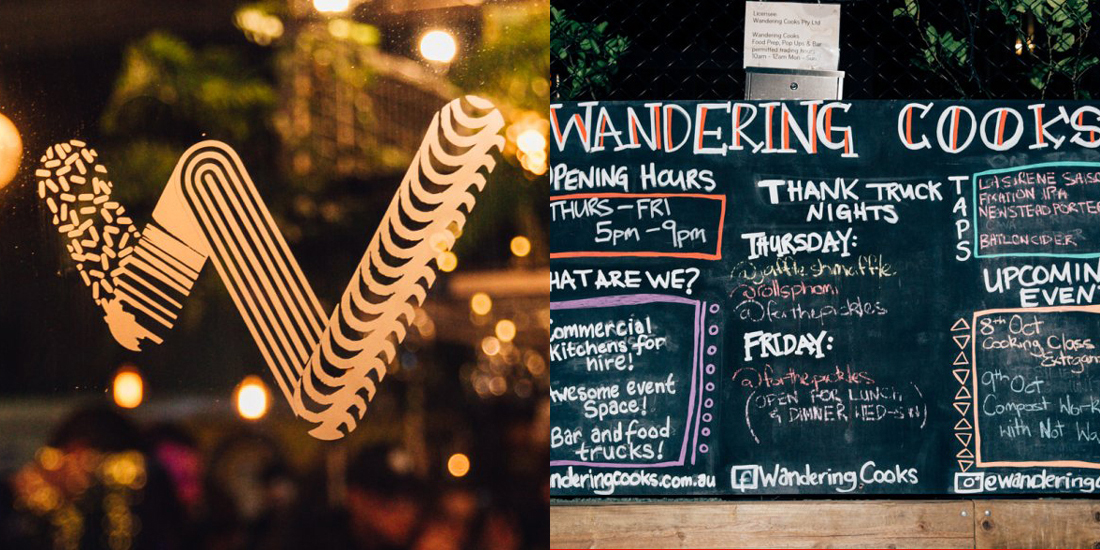 Wheels in motion
Wheels in motion
Wandering Cooks started life in a warehouse space nestled on the corner of Fish Lane and Manning Street, inside which sat a number of licensed and fully equipped commercial kitchens, numerous prep and finish bays, and cold and dry storage – all of which were available for lease at an easy-to-stomach rate. Though there was an initial period of hesitation, soon the first wave of operators started making themselves at home.
Before it blossomed into a powerhouse cafe brand with locations in Newstead, Camp Hill, Hawthorne and South Bank, nodo donuts was a humble market-based purveyor of gluten-free goodies. nodo’s founder Kate Williams, a marketing whiz and graphic designer turned baker, was exactly the demographic Wandering Cooks looked to attract – a novice entrant to the food scene that was in need of a space to hone her product.
“When I came across Wandering Cooks it was amazing,” says Kate, “That was the first kitchen I ever used, before I opened my own. Obviously, you know, when you’re first starting out you have a limited budget to spend on a commercial kitchen. They had everything on a platter for you at Wandering Cooks. A lot of the things that are so overwhelming when you’re starting out – like getting your food licence – they made that process so easy, getting into a kitchen with the best facilities.”
Likewise, West End-based Alphabet Cafe – now a widely beloved brunch and sweet-treat maker – was an early resident of Wandering Cooks, using it as a base of operations to turn its early cake-making business into a city-wide sensation. “We were handed a flyer at a market we were doing,” recalls Alphabet Cafe founder Zoe Tulleners, “We went to Wandering Cooks’ open day and fell in love with the commercial kitchen – it enabled us to be so much more time efficient. To hire a commercial kitchen by the hour was a good precursor to paying rent on our own joint. If we had done Alphabet shady style in our own kitchen it would have been a huge shock and stress to all of a sudden be paying thousands in rent a week for our own cafe space.”
“I was a patron before I started looking at Pie Town as a business,” reflects Susie Yang of Pie Town in West End, whose selection of sweet and savoury pies also traces its genesis to the Wandering Cooks kitchens. “Going from being a customer and really loving all of the food vendors that were already there to having a chat with Ange … she had a really great incubation program where you could just book in for, you know, six hours a week and kind of do whatever you wanted to do.”
The operational model Ange created proved to be a hit, with the roster of businesses using Wandering Cooks as a launch point growing significantly over the first few years. Ben Devlin, owner and chef of Pottsville destination Pipit Restaurant, spent time in the kitchens himself with his experimental pop-up Beerkary Bakery, founded with his partner Yen Trinh. He puts the allure of the Wandering Cooks model into simple terms.
“It was a perfect choice for certain types of businesses, which is to say mobile businesses, more or less,” he shares. “If you were running something like a food truck, food stall or were selling directly to retailers, what you needed was a food licence to sell that product. Separately to that, you need a food-production facility – that’s where as an actual restaurant your kitchen is your licensed food-production facility. You would theoretically need two different things – you would need your stall and that would need to be licensed, but then you’d need a separate kitchen ’cause you can’t make it in your stall.”
“For most people, the cost of doing that or having that is too challenging and too expensive. They only need [a kitchen] for a few hours a week potentially. [At Wandering Cooks] you would just book your space. It could be at 2:00 am and you could do what you needed to do and then move on. As long as everyone was clear on what the parameters were and you left the space as clean as you found it, then everything was super easy.”
In addition to the facilities, operators were also offered access to mentorship programs and events that helped in regards to ideation and getting one’s name out there. “[Ange had] run a couple of mentoring programs that had been really helpful just to kind of break everything down – from really rudimentary food costings to bigger-picture things,” Susie reflects. “Looking at your personal ‘why’ – why you’re doing this and what your goals are.”
“There were a few producer markets, which were almost like a trade show,” recalls Ben. “It was a combination of people who were making things in the space, like jams, muesli bars, whatever – or other people that might have had products that would be suitable to sell to cafes and restaurants. A cafe owner, for example, might come through and try all these different things. So that allowed the people that were doing work in the space to find more revenue streams.”
As Wandering Cooks found its footing and grew, it started to foster a community amongst its group of makers.
“It was pretty relaxed,” says Joe Rocha of Portuguese tart purveyor Lisboa Caffe. “It was just a really loose foodie culture – a place where you can go and try different things. You were in an environment where everybody was making something. Like next to us, there was a guy doing vegan dog food – just some wild ideas that would be hard to test somewhere else.”
Underpinning the Wandering Cooks culture was an ethos of knowledge sharing. Angela was guiding Wandering Cooks residents towards supporting local farmers and engaging with other small food producers, fostering symbiotic relationships and lasting connections in the name of mutually beneficial growth. She even set up private Facebook groups to specifically connect current and past residents and share knowledge.
“I think, culture wise, the sourcing of the product – being from sustainable sources – made a difference,” says Joe. “At the time we were using shit eggs from Coles and Angela would say, “Why don’t you find some more sustainable eggs?”. So we did and we’re still using the same supplier today. There was a lot of information sharing amongst the kitchen users. We also got Pepe Saya – the butter for our pastry – through a pastry chef that at the time was working at Wandering Cooks.
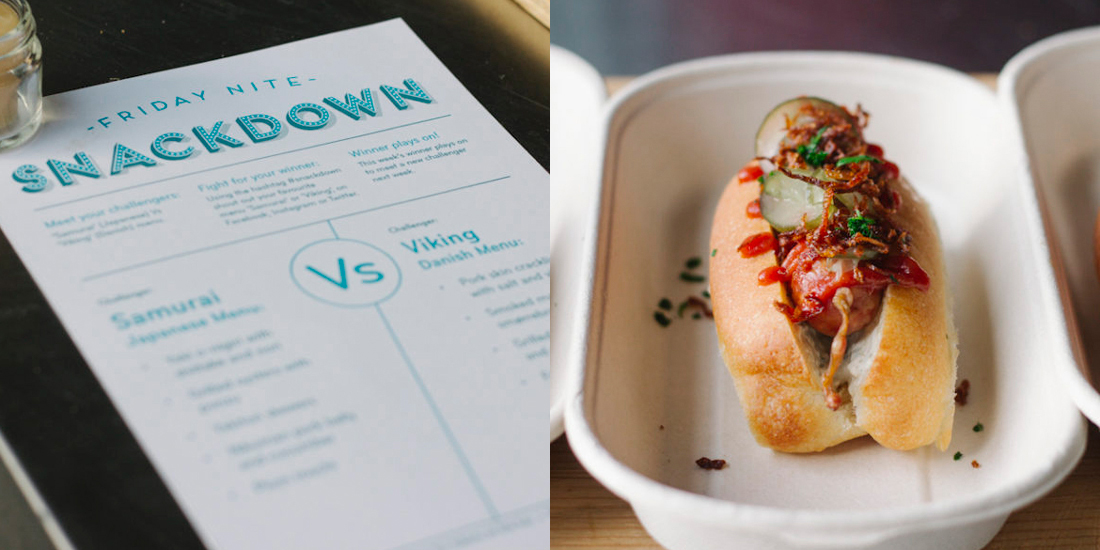 Community, culture, change and challenge
Community, culture, change and challenge
Eventually, the way Wandering Cooks operated began to change – partly as a natural form of evolution, partly as a necessary means of survival. “We started to support more people that were wanting to open restaurants, rather than food producers,” recalls Angela. “That was really a financial decision that was entirely just to keep the business afloat. We needed to shift towards people that wanted to have their own restaurants, because the focus on food production in the kitchens – although it was bound to us and it was bringing in lots and lots of producers – it really wasn’t making enough money to make the whole thing stay afloat.”
With this change, however, came a greater interest from the public, as a host of events – like Thank Truck It’s Thursday food-truck gatherings, Friday Nite Snackdowns, seasonal Small Batch trade shows, assorted food festivals, coffee and brunch concepts, workshops and farm-gate markets – opened up Wandering Cooks to the greater public. Throwing open the doors for operators with goals of opening a bricks-and-mortar location also helped draw in foodies – and they came in droves, making Wandering Cooks a perpetually buzzy spot to sample nosh from up-and-coming names. The venue responded to newfound interest, expanding to add its own bar overseen by Ange and her team.
“We needed to be generating money – not so much from those kitchens, but from the activities that happened around the kitchen,” says Angela. “That’s when we really started becoming an event space and eventually a bar in our own right. All of that activity is what allowed the incubation to happen.”
“I’d really reduced the cost of the kitchens to use at its peak – I think it was probably 2016. We had 120 food producers using [five] kitchens, which was incredible. It became a real logistics exercise of trying to figure out how to fit that together as a puzzle. That was really a challenge, but it was actually awesome to see how many people were utilising that space.”
One could also credit Brisbane’s food-truck explosion to Wandering Cooks – one of the few spots in town where mobile nosh slingers could reliably pump the brakes and serve. “We heralded in the fashion of the food truck,” says Ange. “In our early days it was one of the things that we did that no one else could do, because there was no actual space for it to happen. It was one of the first things that we did to be able to make the space viable, but also because the food trucks were fabulous – they were big and they were vivacious and they were doing really interesting and delicious food. Juan More Taco was actually using our kitchens, The Bone Lorry and Dom Bird’s cute little sandwich concept Local Mobile Deli. Then the Brisbane City Council jumped on board and made it possible for them to sell on the streets.”
The proliferation of events and a fresh wave of occupants allowed Wandering Cooks to take on new life, evolving from a nest for small operators (which it still was) to a fount of foodie inspiration that filtered outward into the public.
“It was so exciting to see someone with a new new product idea that you just hadn’t seen in Brisbane before,” says Angela. “And it was often because they came from another country and no one was making something like that – it was the stuff that made me most excited about what we were doing.”
Established chefs would also use the kitchens for an assortment of inventive concepts, tinkering with out-of-the-box ideas and techniques that would come in handy when they helmed their own kitchens a few years down the track.
“Ben Devlin’s [Beerkary Bakery] pop-up – he used to come in after his shifts at Esquire with other chefs from the restaurant and they used to just start work at 1:00 am and just bake all night,” Ange recalls. “We’d come in in the morning and just, oh my God, the things that they would create out of that front kitchen – the most glorious eclairs and wonders to take off to some beer event.”
“I think it was really exciting for other people to know that a chef of his calibre was finding his creativity in our space. Phil Marchant (now head chef of Fortitude Valley’s ESSA) and Josh Raine (head chef of Tetsuya in Sydney) were also doing their underground food project, which was such a ballsy enterprise for two kids that had not so long ago arrived in Australia. They just really wanted to have some fun and do something in their own name.”
Throughout all of this, Wandering Cooks remained an independent entity. Naturally, this came with challenges. When it came to food incubation, most government funding targeted scaling up – taking established small-scale food operators and helping them become mass producers. This wasn’t the kind of work Wandering Cooks undertook (“We just never ticked the right boxes,” says Ange). Nevertheless, Wandering Cooks remained a pillar of the local food scene until several foundation-shaking events – an eviction notice and a pandemic being chief among them – forced Ange and the team to temporarily cease operations in 2020. After a year of inactivity Wandering Cooks was reborn on Vulture Street – no longer an incubator, but a fully-fledged eatery and bar that drew solely upon produce and ingredients sourced from local farmers. Ange had been gently guiding Wandering Cooks in this direction in the years leading up to the move, shaking up the model by encouraging chefs to formulate menus out of sustainable ingredients, seemingly striking a balance between nurturing talent and supporting growers.
“I think one thing that became clear when we decided to change the model, when we couldn’t support the original model anymore, was that the people that had worked in our space started to form their own unions and find their own collaborations and move out into their own spaces. That made me feel like it was fine that we couldn’t do it anymore because there were so many people that could see the benefit from sharing and collaborating from there.”
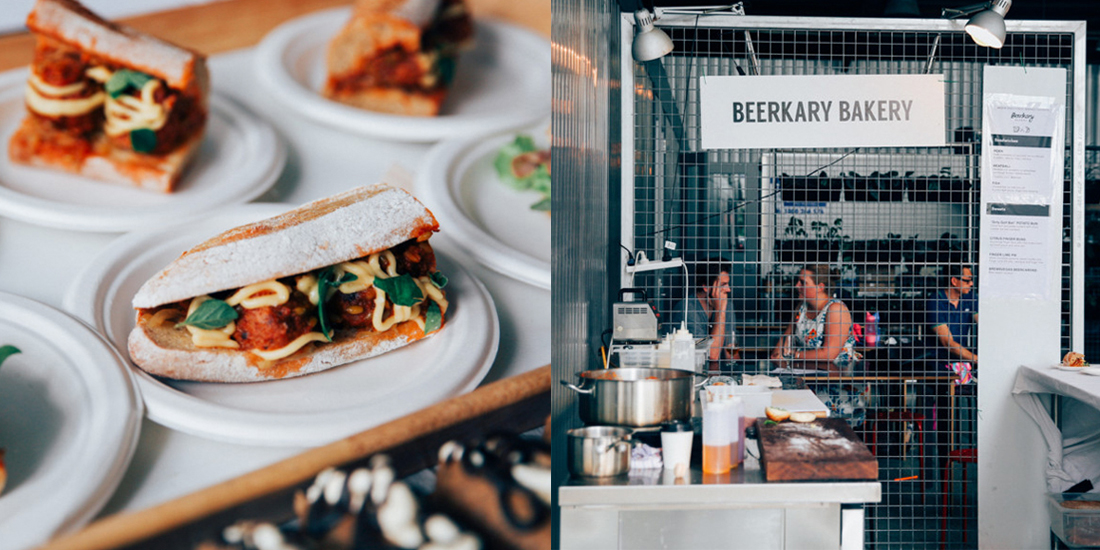 Leaving a lasting legacy
Leaving a lasting legacy
It’s hard to deny that Wandering Cooks had an indelible impact on Brisbane’s food scene. On one hand, its legacy is tangible – you can see, smell and taste it. Numerous venues and businesses that started in the Wandering Cooks kitchens are still in operation today, several years removed from its incubation period. Beyond Alphabet Cafe, nodo, Lisboa Caffe and Pie Town, other success stories include El Planta, NYC Bagel Deli, Bella & Tortie, Indie Treats, The Steepery, Picklehead Pickles, 31 Degrees Custom Chocolates, Bask & Co., Bee One Third and countless others. Some of these names have their own shop fronts or eateries, others are cherished items found on pantry shelves or in fridges across Australia.
“I think it’d be hard for us to find a food business that started in Brisbane that hasn’t passed through Wandering Cooks at some stage,” Susie says of the long-term impact of the incubator. “I still spend a lot of time at all of the different establishments that started from Cooks. It will always live on, in a small part, through the businesses that are still up and running and very successful in Brisbane.”
In addition to equipping its partners with resources and advice on how to begin, Angela and the Wandering Cooks crew also helped foster a sense of confidence amongst those that found their way into the kitchens. Here, they could experiment and take risks but, perhaps most importantly, they could fail. Ideas don’t always succeed on the first try – at Wandering Cooks many makers could return to the drawing board without it being a catastrophic setback.
“I guess it was kind of like a safety net, you know?” says Ben. “They were there with you. They felt your rise and your fall – you could talk to people about it and talk to the other workers about it. It provided you a community to be in, because you were all kind of trying to succeed at the same game. For me personally, it was exactly what I needed at the time. It gave me something to think about every week. That was really valuable to me at the time because I was feeling a bit lost and that helped me to focus on the things that I wanted to do and learn.”
“Two kids without any experience trying to make vegetarian tacos. I don’t think any landlord would’ve gone, “Yeah, sure. Here’s the key, go for it,” says Rick Gibson, co-founder of plant-based Mexican concept El Planta alongside Adrienne Jory. ”We’re eternally grateful for that. It was something that was very needed in Brisbane.”
“Rick and I just love to eat and love to cook, but neither of us had ever worked in a kitchen before,” adds Adrienne, “We’d never worked in a restaurant before. The only time Rick and I were in a restaurant was when we were going to eat and drink. There were so many people like us at Wandering Cooks and that was the best bit. No one had come from a restaurant background, necessarily – it was people who just wanted to create food that they were making at home on a wider scale.”
Another way it shaped Brisbane’s food scene was through the way it opened locals up to new tastes and ideas, shining a light on cuisines that would struggle to break through under different circumstances.
“There was nothing like it, and I still don’t think there is,” says Rick. “Some of the food we ate at Wandering Cooks, I haven’t had anything else like it in Brisbane still. There used to be amazing Ethiopian food that I haven’t seen since.”
“It just multiplied the options,” says Joe. “There was no one doing Portuguese tarts, no one doing gluten-free donuts, no one doing kaffir drinks. Then there was just all this stuff – El Planta next to us, Pie Town – added to the food scene.”
Everyone agrees that a Wandering Cooks-like concept still has a place in Brisbane’s food landscape. Though programs like the Future Food Initiative and operations like the Food Connect Shed support new entrants in ways similar to Wandering Cooks, the business’s closure leaves big shoes to fill. Angela believes the spirit of Wandering Cooks can continue at a grass-roots level.
“I look at the businesses that survive in hospitality at the moment – and some of them are so successful and busy that they wouldn’t have room – but if they’re not I think it’s worth considering bringing into your space someone who is just starting out and figuring out how to share your space and how to benefit from having more than one business under one roof.”
In a post-pandemic landscape, where pivots and risk-taking became the norm, it might be sage advice for operators moving forward.
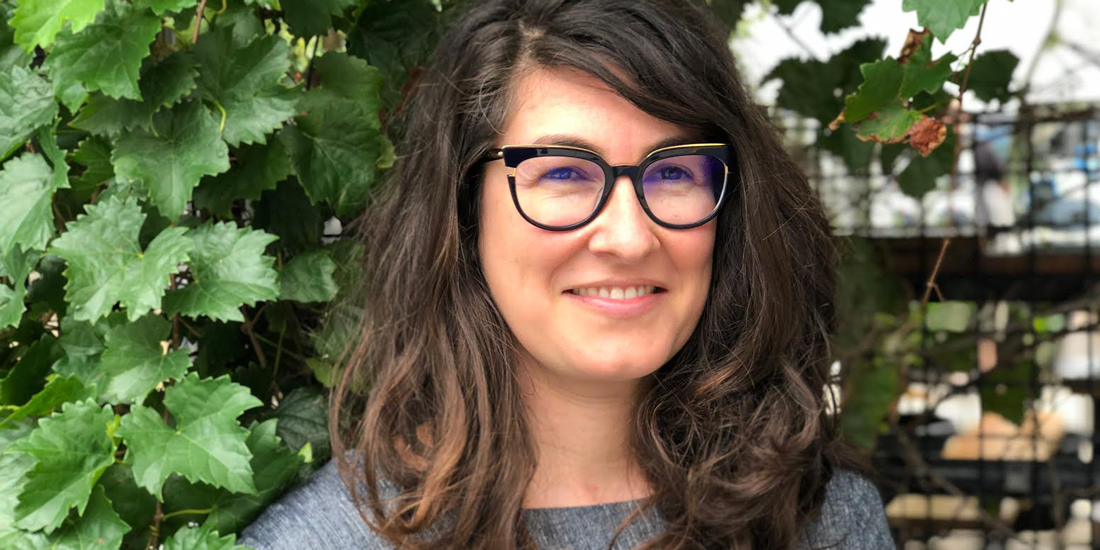 The dreamer at the heart of it all
The dreamer at the heart of it all
Angela would be the first to stress that Wandering Cooks was a team effort. In her farewell statement posted to social media, Ange poignantly declared that “this business has never had a premise. It’s been people.” While Wandering Cooks (and its magic) was the result of a collaborative effort from all that participated over the years, many of those that passed through its kitchens would single Ange out as the unequivocal driving force behind the concept and the primary source of its striving, inquisitive spirit.
“I always have this fond memory of Ange, just being this really easy person to talk to and to confide in,” Kate from nodo recalls fondly. “She was such a calming influence when I was around her – I found that she was just very supportive.”
Zoe from Alphabet Cafe was similarly effusive with praise for the Wandering Cooks founder. “The most special aspect of Wandering Cooks was definitely Ange. She was so helpful to us as a sounding board for ideas, giving us catering opportunities and we felt like she always had our back. It was inspiring to see Ange stick by her ethics and morals regarding locality and sustainability. Most of all, Ange became a great friend of ours.”
In the weeks since Ange’s announcement, many of those that interacted with Wandering Cooks in some way reached out, expressing thanks for the effort and the memories their experiences left. Nine years, hundreds of food makers and countless meals – it all amounted to something truly special, something that belonged to Brisbane. This is something that has helped ease Ange’s heartache at calling time on such a cherished extension of her passions – and a funnel for a lot of blood, sweat and tears.
“People knew what I needed, which is to hear that it was worth it.”
When asked for her own thoughts on Brisbane’s culinary cartography – now that it’s without Wandering Cooks as a significant landmark – she admits that she’s only just getting to grips with life beyond the project.
“I think that I’ve been so buried in my own business’ viability that it’s been very difficult for me to step out and see what’s going on in Brisbane more broadly in the last few years,” Ange admits. “So I’m really looking forward to that happening. I’m looking forward to having some space – to be able to see what’s going on in Brisbane.”
One thing is certain, Ange isn’t done with food – she probably isn’t done helping others, either.
“The thing that I’m most passionate about – creating an environment that can help small and micro business thrive while providing an avenue and opportunity for small farmers around us to do the same – I don’t think anything’s going to change about that. Seeing ways that that can be encouraged in new and different kinds of business models is something that I’ll be keeping my eye on and looking for opportunities to get involved in.”
The best final word on Wandering Cooks that can be expressed is the closing sentiment in Ange’s closure announcement – “So I guess I don’t really know what the question of Wandering Cooks was after all. But I reckon the answer turned out to be love.”
The Stumble Guide is our comprehensive Brisbane dining guide with more than 2400 places to eat, drink, shop and play.

